|
When performing stellar
spectroscopy with the Star Analyzer grating, a fast Newtonian
will yield poor off axis star images when the star is offset
to allow the full spectrum spread to be in the center of the
frame. To alleviate this issue, I designed the grating offset
device. Here, we can center the star in the sharpest part of
the field, with no coma or distortion - then offset the camera
to center the spectra. Since the spectra is simply a ghost image
of the star, a sharp off axis star will give a superior sharp
spectrum. Now lets go into detail here.
Click on thumbnails
below for larger view:
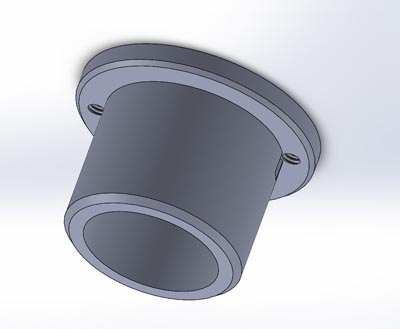 |
To
connect the adapter to the telescopes 2 inch focuser, a 2 inch
mounting tube with flange is provided. |
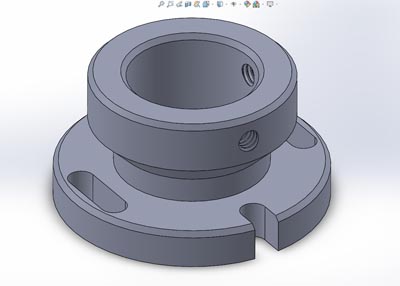 |
The
camera will be installed on the 1.25 inch receiver here, and
the nylon bolts tightened. |
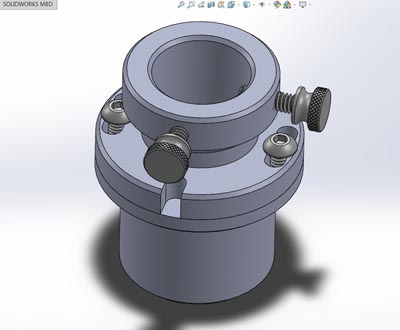 |
Together,
the device allows a horizontal shift in the camera after centering
the target star to center the spectra. It is then locked in place
for imaging. |
 |
Solid
works Visualizer rendering of the completed assembly. |
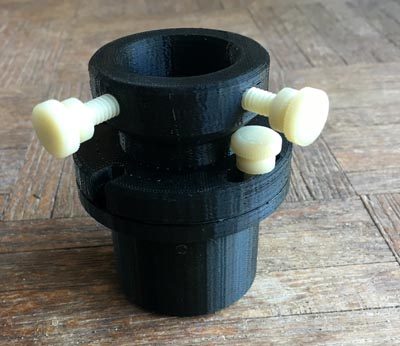 |
The
actual Grating Offset Device. It was printed in black to minimize
stray light. The thumbscrews are not nylon, they are a mix of
glass that is impregnated into the nylon for added strength without
marring the cameras tube. |
 |
2
inch focuser tube end. |
 |
Looking
down into the 1.25 inch camera mount. |
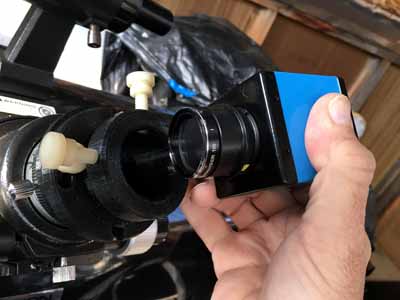 |
At the
Telescope. First, the grating is installed on the camera as seen
here as a clear filter over the tube end. |
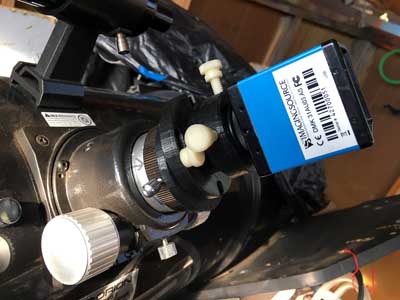 |
The
camera is locked down with the the offset slots correctly oriented
to move the camera along the spectral dispersion. |
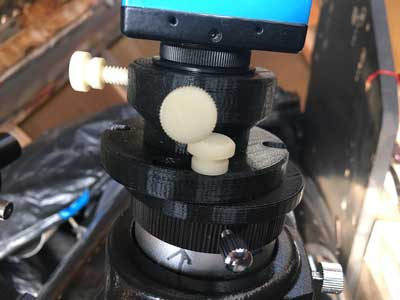 |
Final
configuration with camera offset to center spectra. |
 |
Sample
image with device. The star is on the left (RR Hercules, a fine
red variable) and the spectrum streaks on the right. We want
the star just inside the frame for a zero wavelength reference
and all of the spectra. The spectra is mostly in the IR here. |
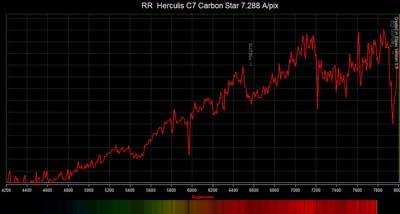 |
Final
spectral analysis of the spectral trace in RSPEC. A gorgeous
red carbon star! |
|



HOME